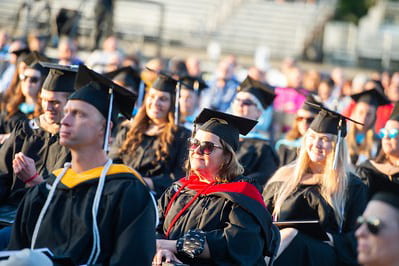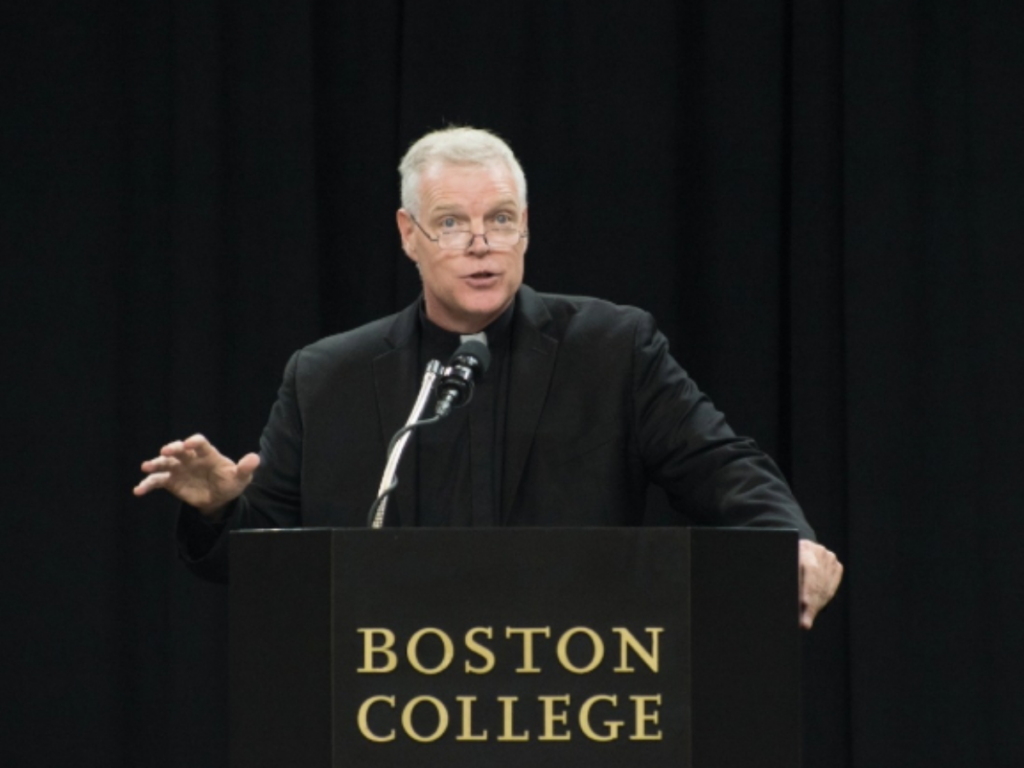Graduate Theology Programs
Graduate Theology Programs
The Graduate Theology Program is a singular offering at a singular institution — the country’s only college founded, sponsored, and administered by Dominican Friars. In the Dominican tradition, our faculty are working scholars who “share the fruits of their contemplation” with students. Our faculty is ecclesially minded, and teaches a theology that is deeply rooted in the Roman Catholic tradition, grounded in the concrete life of the Church and in accord with the Church’s magisterium.
Our program attracts a variety of students, including traditional-minded graduate students who have attended a Roman Catholic undergraduate institution, educators or lay ministers working in the Roman Catholic Church, and employees of local dioceses and Catholic high schools. The program also serves Dominican sisters from traditional communities. Additionally, we encourage applications from students with diverse and non-traditional backgrounds who have discovered a desire to study theology.
EXPLORE GRADUATE THEOLOGY PROGRAMS
Master of Arts in Theology
Master of Theological Studies
Master of Arts in Catholic Theology & Culture
GRADUATE THEOLOGY COURSES
Summer 2025 Courses
BEYOND THE CLASSROOM
Dr. Arthur Urbano speaks on Pope Emeritus Benedict and Judaism
Dr. Arthur Urbano offered thoughtful commentary on the late Pope Emeritus Benedict’s relationship with Judaism in a recent article published in The Catholic Spirit. Dr. Urbano, who chairs the Jewish-Catholic Theological Exchange Committee at Providence College explains that there is a complicated history between Pope Emeritus and the Jewish community. After allowing use of the 1962 Roman Missal, and composing a subsequent prayer, “many on both sides of the dialogue” still found it “did not reflect the new state of Jewish-Catholic relations,” says Dr. Urbano.
Faculty Scholar Ian Levy, Ph.D., opens the world of Christian history to students
As a historical theologian, Ian Christopher Levy, Ph.D., professor of theology, knows that Christian teaching is inseparable from the experiences of those who have received it and passed it on for nearly two millennia. Tradition is said to be the living faith of the dead. Levy’s teaching and scholarship look to the ways that the dead, in life, gave further shape and context to the tradition Christians inherit today. This approach considers experiences of tradition that are complicated, multi-layered, and multi-linear…
Dr. Holly Taylor Coolman on Religious Community
Dr. Holly Taylor Coolman responded to a Pew Research Center survey about religion during the pandemic in an article entitled “Survey shows stronger personal religious faith during pandemic” in the Rhode Island Catholic newspaper. Dr. Coolman discussed the importance of being part of a community during the pandemic: “Catholics have in their tradition, an especially strong ecclesial sense that all of this has to do with our connections to one another and living with one another.”
THEOLOGY PROGRAM STORIES
What I appreciate most about the program was the opportunity to explore the wonder and mystery of man’s relationship with God from ancient times to today.
VICKI-ANN DOWNING ’21G, Director of Editorial Services, PROVIDENCE COLLEGE MAGAZINE


Rev. John “Jack” Butler, S.J. ’91G has been named the 26th president of Boston College, effective summer 2026. He earned his master’s degree in theology from Providence College before entering the Society of Jesus, and has played a key role in advancing BC’s strategic priorities in formative education, curriculum renewal, and student wellness.
Additional Contacts
Dr. Sandra Toenies Keating
Graduate Program Director
Siena Hall 238
skeating@providence.edu
Jennifer Pastor
Administrative Coordinator
Siena Hall 207
401.865.2274
jpastor@providence.edu
Theology Department
Siena Hall
401.865.2274






